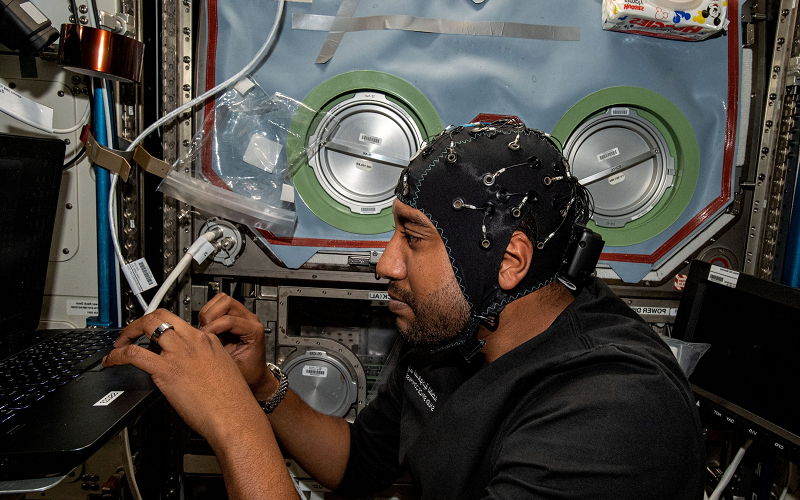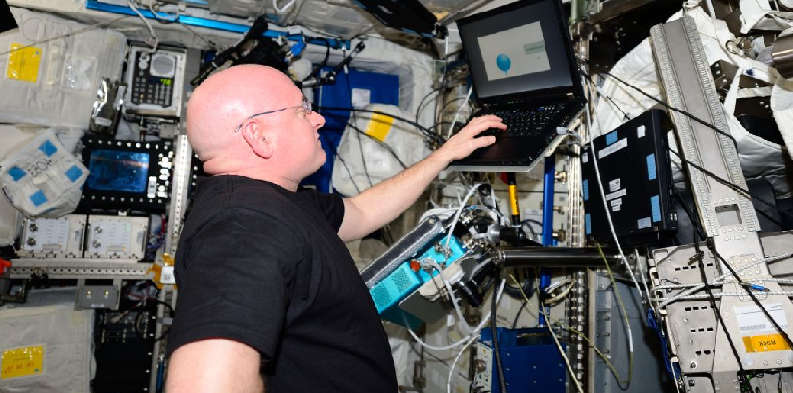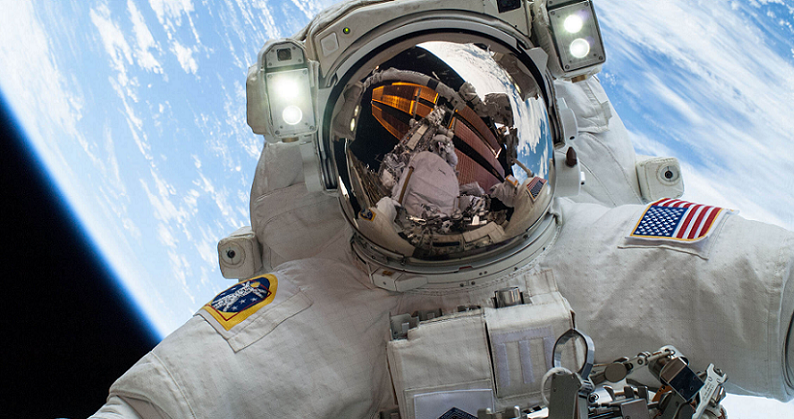
Imagine floating in a realm where the pull of gravity is practically non-existent. This scenario, which seems straight out of a science fiction novel, is a daily reality for astronauts living in space. Microgravity, the condition of experiencing very little gravitational force, is more than just an unusual sensation; it has profound effects on the human body, particularly on cognitive functions. From the disorienting lack of up and down in space to the long-term challenges faced by those who spend extended periods in orbit, living outside the Earth’s gravitational pull impacts spatial orientation, memory, problem-solving, and decision-making abilities.
Contents
Understanding Microgravity
Before delving into the cognitive impacts of living in microgravity, it’s crucial to understand what microgravity is and how it differs from the gravity we experience on Earth. This understanding forms the foundation for comprehending the unique challenges astronauts face in space.
Scientific Explanation of Microgravity
Microgravity, often referred to as zero gravity, is a condition where the force of gravity is not zero but is significantly less than what we experience on Earth. This phenomenon occurs because objects in orbit, such as the International Space Station (ISS), are in a continuous state of freefall towards the Earth. However, due to their horizontal velocity, they keep missing the Earth, creating a sensation of weightlessness. This environment is an ideal laboratory for scientific research, offering a unique perspective on physical and biological processes.
Comparison with Earth’s Gravity
To appreciate the effects of microgravity, it’s important to contrast it with the gravitational forces on Earth. Earth’s gravity is what keeps us grounded and affects everything from our physical structure to how various systems in our body function. In microgravity, the absence of this strong gravitational pull means that the body and all inside it experience a state of constant free-fall. This difference is not just physical; it extends to how basic bodily functions and cognitive processes operate.
Historical Context of Microgravity Research
The study of microgravity began with the onset of human spaceflight in the mid-20th century. Over the decades, numerous space missions have contributed to our understanding of life in space. Early space programs focused on understanding the basic impacts of space travel on the human body. With advancements in technology and longer durations in space, recent research has shifted towards understanding the more subtle and long-term effects, including cognitive function. This research has not only provided insights into the adaptability of the human body but also paved the way for future exploration and potential habitation outside Earth [1].

Cognitive Changes in Microgravity
Living in a microgravity environment presents unique challenges to the human brain. The absence of a strong gravitational force not only alters physical sensations but also has significant implications for cognitive functions. Understanding these changes is critical, especially as we plan for longer space missions.
Short-Term Cognitive Effects
The immediate impact of microgravity on cognitive functions can be profound, though these effects are generally temporary and resolve upon return to Earth’s gravity.
Spatial Orientation and Balance
In microgravity, the usual cues that help us orient ourselves in space are absent. This disorientation affects an astronaut’s ability to perceive up and down, leading to initial confusion and difficulty in navigating space environments. This phenomenon is known as space adaptation syndrome, characterized by dizziness and a lack of spatial awareness.
Attention and Reaction Times
Microgravity also impacts attention span and reaction time. Astronauts often report a slight but noticeable decrease in their ability to focus and react quickly in the initial days of their space mission. This change is attributed to the brain adjusting to the new environment, where traditional sensory inputs, like the feeling of one’s feet on the ground, are absent [2].
Long-Term Cognitive Effects
While short-term effects are relatively well understood, the long-term cognitive impacts of living in microgravity are a subject of ongoing research.
Memory Impairment
Extended stays in space have been linked to mild memory impairments. The exact mechanism is still under investigation, but it’s hypothesized that changes in brain structure due to the absence of gravity, coupled with high levels of stress and altered sleep patterns, could contribute to these memory issues.
Problem-Solving and Decision-Making Challenges
There’s evidence to suggest that prolonged exposure to microgravity might affect complex cognitive functions like problem-solving and decision-making. The microgravity environment demands constant adaptation, which can tax cognitive resources over time. Astronauts must continually adjust to new ways of performing everyday tasks, which can affect their ability to process information and make decisions.

The Brain in Microgravity
The human brain’s response to microgravity is one of the most fascinating aspects of space research. Understanding these neurological changes is crucial for ensuring the safety and performance of astronauts on long-duration space missions.
Neurological Changes Observed in Space
Microgravity has a significant impact on the brain’s structure and function. One of the most notable changes observed is a shift in brain fluids. On Earth, gravity pulls bodily fluids down, but in space, these fluids redistribute towards the head. This can lead to increased intracranial pressure, potentially affecting vision and other brain functions. Additionally, alterations in blood flow patterns in the brain have been documented, though the long-term implications of these changes are still being studied.
Impact of Microgravity on Brain Structure and Function
Prolonged exposure to microgravity can lead to structural changes in the brain. Imaging studies of astronauts before and after space missions have shown alterations in the white and gray matter, which are critical for processing and transmitting information. There’s also evidence of changes in the connectivity between different regions of the brain. These structural changes could underlie the cognitive alterations observed in astronauts, although research in this area is ongoing [3].
Microgravity Studies and Experiments on Astronauts
To understand these complex changes, various studies and experiments have been conducted on astronauts. These include cognitive tests performed before, during, and after space missions, brain imaging studies, and monitoring brain function and structure in real-time. The findings from these studies not only enhance our understanding of the brain’s adaptability but also inform the development of strategies to mitigate potential adverse effects on cognitive functions.
Countermeasures and Research Involving Microgravity and Cognitive Decline
As we gain a better understanding of how microgravity affects cognitive functions, it becomes increasingly important to develop countermeasures to mitigate these effects. Ongoing research in this area is not only crucial for the well-being of astronauts but also contributes to our broader understanding of cognitive health in challenging environments.
Preventative Measures for Cognitive Decline
Various strategies are being explored to counteract the cognitive decline associated with living in microgravity. These include:
Physical Exercise
Regular exercise is one of the most effective ways to combat the effects of microgravity. It helps maintain physical health, which is closely linked to cognitive function. Exercise regimes on the International Space Station (ISS) include a combination of aerobic and resistance training [4].
Cognitive Training Programs
Just as astronauts undergo physical training, cognitive training is also essential. This includes memory exercises, problem-solving tasks, and simulations that help keep their minds sharp and prepared for the unique challenges of space.
Environmental Modifications
Adjusting the living and working environment in space can also help. This includes optimizing lighting to regulate circadian rhythms, reducing noise, and creating spaces that allow for personal interaction and mental relaxation.
Ongoing Research in Space Medicine
Research in space medicine is continuously evolving, with several studies focused on understanding and mitigating the cognitive impacts of microgravity. This research involves collaboration between space agencies, medical researchers, and neuroscientists. Studies range from examining the effects of microgravity on brain structure and function to testing the efficacy of various countermeasures [5].
Future Directions and Technologies Regarding Microgravity and Cognitive Decline
Looking forward, the integration of advanced technologies is set to play a critical role in this research. Virtual reality, for example, offers exciting possibilities for cognitive training and simulation. Additionally, advancements in brain imaging technologies and neuro-monitoring tools will provide deeper insights into how microgravity affects the brain and how best to protect it.
References
[1] The Effect of Microgravity-Like Conditions on High-Level Cognition
[2] Microgravity effects on the human brain and behavior: Dysfunction and adaptive plasticity
[3] A review of alterations to the brain during spaceflight and the potential relevance to crew in long-duration space exploration
[4] Cognitive problems could result from long space missions in zero gravity
[5] Study protocol to examine the effects of spaceflight and a spaceflight analog on neurocognitive performance

